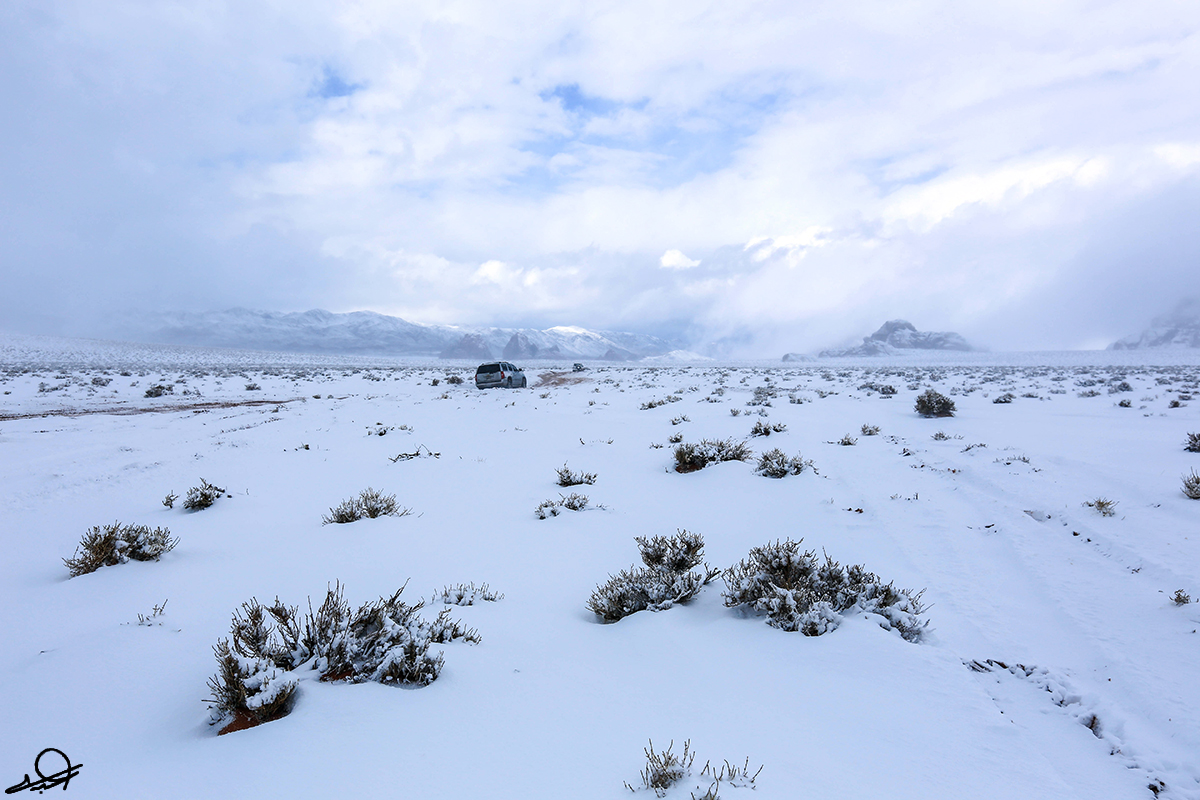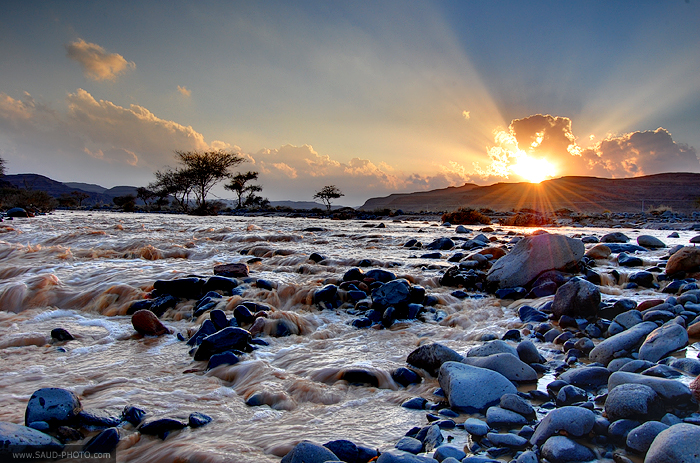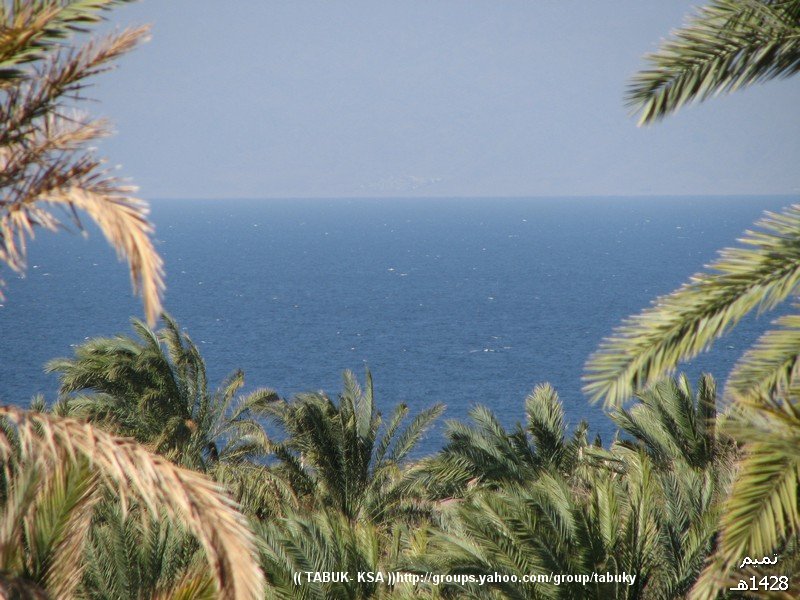Saif al-Arab
BANNED

- Joined
- Mar 26, 2015
- Messages
- 8,873
- Reaction score
- 5
- Country
- Location
I thought the Aramco IPO was meant to partially fund the Neom project?.... How is the Neom project developing as of now?
Saudi's $500 billion mega-city NEOM is attracting 'overwhelming' interest from investors
- With ambitious plans to transform its economy as part of the crown prince's Vision 2030, Saudi Arabia is hoping to boost foreign direct investment (FDI).
- It hopes ambitious mega projects like the futuristic city of NEOM will attract FDI.
Published 6:51 AM ET Thu, 10 May 2018 Updated 9:01 AM ET Thu, 10 May 2018CNBC.com
With ambitious plans to transform its economy as part of the crown prince's Vision 2030, Saudi Arabia is hoping to boost foreign direct investment (FDI) into the country as it embarks on a post-oil era and ambitious mega projects like the futuristic city of NEOM.
Ibrahim Al-Omar, governor of the Saudi Arabian General Investment Authority (SAGIA), said foreign direct investment (FDI) was growing in Saudi Arabia.
Official figures from the World Bank show FDI net inflows were $7.453 billion in 2016 while net outflows were $8.936 in the same year.
Since then, however, Saudi Arabia's Crown Prince Mohammed bin Salman has appeared to take the reigns on transforming the economy and society by introducing a raft of liberalizing reforms.
An anti-corruption purge led by the crown prince last year caused concern among some business leaders, but Al-Omar said foreign investment was now growing, but didn't give more detail.
"We have seen a growth for foreign investment — about 50 percent comparing the first quarter this year to the same period last year. Also, the (FDI) inflows we have seen about 40 percent," Al-Omar told CNBC's Hadley Gamble as she hosted a session on the Saudi Arabian FDI landscape at the Gateway Gulf investment forum in Bahrain.

Simon Dawson | Bloomberg | Getty Images
The Kingdom Tower (center) stands on the skyline above the King Fahd highway in Riyadh, Saudi Arabia.
Saudi Arabia was ready to help businesses set up in the country and SAGIA was working with government entities to support and incentivize foreign investment, Al-Omar said.
The country also wanted to improve its business environment and ranking on the World Bank's "ease of doing business index" — it is currently at number 92 in the index of 190 countries.
"We have a target to be number 20 in the rankings of the ease of doing business by 2020. We are working with the World Bank and best practice across the world and we have identified over 400 reforms. Today, we have achieved about 40 percent of them," he said.
Al-Omar's comments come at an inflection point for Saudi Arabia as it, and its neighbors, try to wean themselves off oil as a main driver of the economy.
Economic sustainability has become something of a mantra for countries trying to invest in other sectors and infrastructure, as well as attract foreign investment into those areas, as a bid to weather future declines in oil prices.
Saudi Arabia's economic transformation strategy, the much-vaunted Vision 2030 that's being driven by Crown Prince Mohammed bin Salman, aims to increase FDI into Saudi Arabia from 3.8 percent to the international level of 5.7 percent of gross domestic product (GDP).
Promoting the kingdom as a nation that's "open for business," the strategy also aims for Saudi to rise from its current position of 25 to the top 10 countries on the Global Competitiveness Index. In addition, Vision 2030 aims to increase the private sector's contribution from 40 percent to 65 percent of GDP.
'Overwhelming' interest in NEOM
The $500 billion industrial zone of NEOM is one of Saudi Arabia's mega-projects that it hopes will bring in billions from foreign investors.
The ambitious 26,500 square kilometer business zone will link Saudi Arabia, Egypt and Jordan and is envisaged as a futuristic hub for both industry and citizens. It aims to embrace digital technologies and services to make the city a major commercial location in the Middle East.
NEOM's Chief Executive Klaus Kleinfeld told the audience at the Gateway Gulf forum on Thursday that the project was attracting massive interest from foreign investors.
"The investment case for NEOM is actually very easy to make, because we've got so many things going for us," he said during the FDI panel, adding that the interest in partnering with Saudi Arabia in the creation of NEOM was "overwhelming."
"We've had a huge amount of interest and we're talking to a lot of companies that are at the forefront of technologies wanting to partner with us and try out things in NEOM... On the technological side, a lot of people look at it as a place where they think they can try a lot of things out."
Officials hope a privatization program, including the sale of 5 percent of oil giant Saudi Aramco, will raise $300 billion to help fund the creation of NEOM, which is under construction, and that more money will be invested by the private sector.
In a bid to remove bureaucratic and legislative obstacles that could deter businesses, Kleinfeld said the crown prince had specifically instructed that regulations be written in the most business-friendly and future-orientated way as possible.
The project is estimated to take between 30 to 50 years to complete, however, with the first phase due by 2025.
"And the $500 billion, we're not going to spend it all tomorrow and, quite frankly, a lot of it will come from private investments," Kleinfeld said. "But what I'm seeing today is that the interest in partnering is overwhelming."
Kleinfeld said that key concepts for NEOM, such as mobility around the city, were still being explored and there "there are gazillions of players that are willing to help and willing to invest in that," he said.
https://www.cnbc.com/2018/05/10/sau...ing-overwhelming-interest-from-investors.html
There is a reason why 2/3's of all the harmful Mullah's (if not all relevant Mullah's) are rotting behind bars or disposed off for good. Trojan horses, when at a crucial crossroads, cannot be tolerated at the expense of the nation and people.
In related news:
Saudi Arabia Wins Coveted Emerging-Market Status in MSCI Upgrade
By
Filipe Pacheco
and
Matthew Martin
20. juni 2018 22.38 CEST
Index compiler to implement upgrade starting next year
Country is the biggest market in the Middle East, Africa
Saudi Arabia’s efforts to modernize its stock market and attract billions in investments were recognized by MSCI Inc., which announced on Wednesday the addition of the kingdom to its group of emerging markets.
The index compiler, which has more than $1.9 trillion in assets benchmarked to its group of emerging markets indexes, will reclassify Saudi Arabia with implementation of its indexes starting in June 2019, it said. The nation was added to a watch list for a potential upgrade last year, and will now join nations including China, India, Turkey, South Africa and Brazil. Separately, MSCI said it would upgrade Argentina to the category as well.
“By supporting the inclusion of Saudi Arabia and Argentina in Emerging Markets, international institutional investors confirmed that they are now able and ready to access and operate in these markets,” said Sebastien Lieblich, MSCI Managing Director and Global Head of Equity Solutions.
Analysts estimate MSCI’s decision on Saudi Arabia will lead to billions of dollars from money managers worldwide and help improve liquidity in the biggest stock market in the Middle East and Africa. The Saudi capital markets regulator and local stock exchange have implemented a series of changes during the past few years aimed on adapting the bourse to international standards and requirements by index compilers.
Inclusion “is a game-changer for Saudi Arabia’s capital markets,” said Antoine Maurel, head of global markets for Middle East, North Africa and Turkey at HSBC Bank Middle East Ltd., who estimates it will lead to $35 billion of inflows. “This will create a much deeper and more liquid market,“ he said. HSBC was among the first qualified foreign investors to trade Saudi stocks directly three years ago.
Modernization of the stock market is part of a broader plan spearheaded by Crown Prince Mohammed Bin Salman to steer the nation’s economy away from oil and diversify the government’s sources of revenue. That includes selling shares in government-owned Saudi Aramco, which is expected to stage an initial public offering in Riyadh that could be the world’s biggest. FTSE Russell upgraded the country to emerging markets status in March.
Gradual Opening
Saudi Arabia opened its $524 billion stock market to foreign investors three years ago. Since then, it eased requirements for these investors with measures such as lowering the minimum amount of assets under management to get the status of qualified foreign investors, or QFI, and aligned trade settlement times with international standards.
Mohamad Al Hajj, equities strategist at the research arm of EFG-Hermes Holding, estimated that upgrades by FTSE and MSCI could lead to passive and active inflows of between $30 billion and $45 billion. Franklin Templeton Investments announced earlier this week that some of its funds have won approval as QFI in Saudi Arabia, while others are in the pipeline for authorization.
Ownership Breakdown
By nationality and investor type, as of June 7
Source: Tadawul
* The Gulf Cooperation Council comprises Saudi Arabia, the U.A.E., Qatar, Oman, Bahrain and Kuwait
Speculation that an upgrade was coming helped boost the Tadawul All Share Index by about 13 percent this year, compared with a drop of about 6 percent for the MSCI Emerging Markets Index during the same period. Foreigners were net buyers of Saudi stocks in almost every week this year, with net inflows of about 11.4 billion riyals ($3 billion) as of June 7 on aggregate for 2018, according to data compiled by Bloomberg.
Still, buyers from abroad have been coming in slowly overall, with total foreign ownership of Saudi stocks at about 5 percent -- below that of neighbors such as Qatar and the United Arab Emirates. Both have been members of the MSCI EM index since 2014.

Read more on why Saudi stocks are pricier than emerging markets peers.
The upgrade sets the stage for the Aramco IPO, another event that could boost liquidity. The sale, originally planned for the second half of this year, is now likely in 2019, the kingdom’s oil minister said last month. Saudi Arabia hopes to sell 5 percent of the world’s largest oil exporter, valuing the company at more than $2 trillion.
earlier this month he isn’t completely bullish on Saudi Arabia because the range of offerings is limited and a number of restrictions are still in place.
Last year’s detention of princes and dozens of officials for about three months, in what Saudi authorities called a crackdown on corruption, unnerved investors, and some cite a lack of transparency and doubts over corporate governance as reasons to stay away.
In the past three years, the Saudi stock market “has become much more open and much closer to international standards," said Mazen Alsudairi, head of research at Al Rajhi Capital Co. in Riyadh. “Saudi’s inclusion in MSCI will definitely prompt large global investors to invest in the Kingdom, with a rub-off effect on the whole region.”
https://www.bloomberg.com/news/arti...oveted-emerging-market-status-in-msci-upgrade









 Saudi Arabia - Tabuk ,
Saudi Arabia - Tabuk , Saudi Arabia. Tabuk 2010
Saudi Arabia. Tabuk 2010










